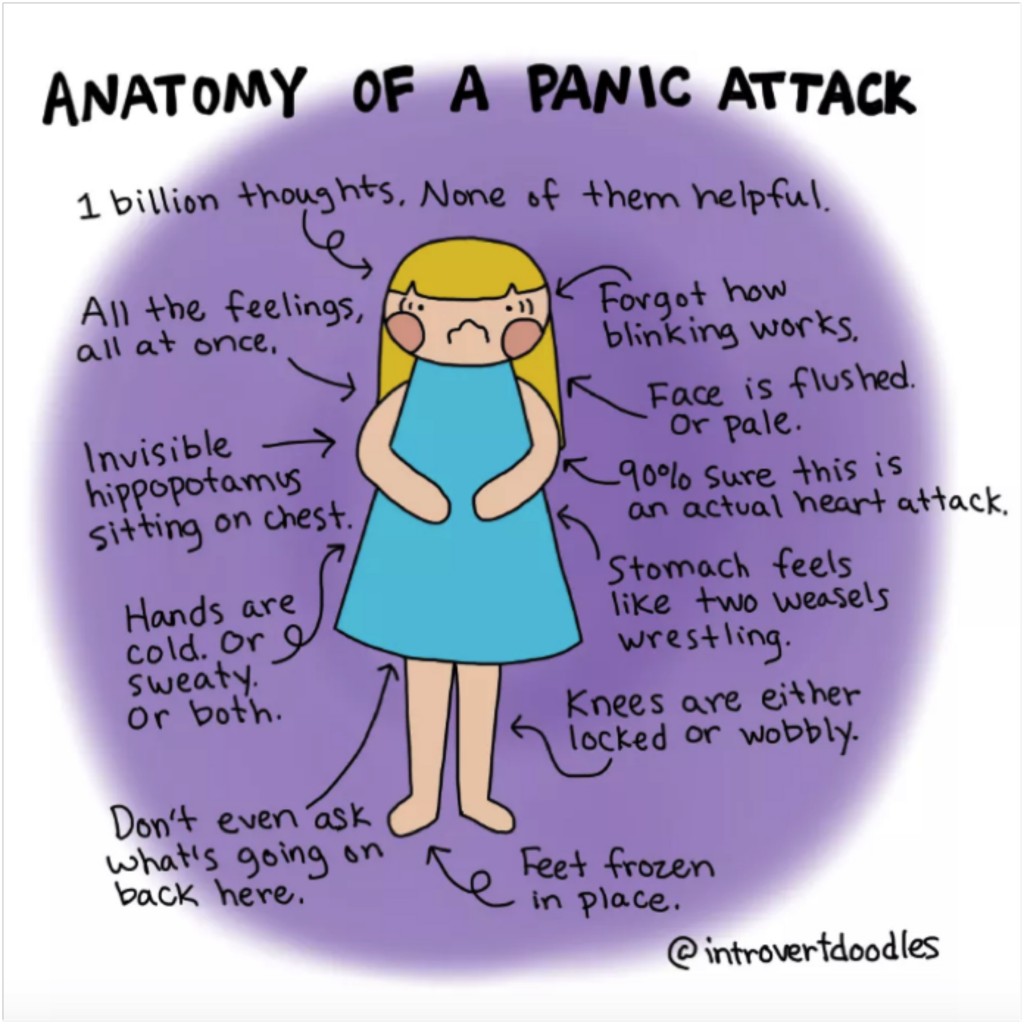What is a panic attack?
Years ago was the first time I’d ever witnessed someone having a panic attack and it happened in my consulting rooms. I must admit it was scary. My client was talking about a really tough event from her past. Suddenly I could see that (let’s call her) Sarah was triggered into an intense overwhelming feeling. I knew this because she stopped talking mid-sentence, went pale, clutched at her neck and told me she couldn’t breathe. Sarah had some of the classic signs of a panic attack such as :
sweating / heart racing
short of breath / shaking
feeling like you are choking
scared of losing control or going crazy
How to tell if you are having a panic attack?
Luckily I tend to get very calm in a crisis and usually wait until later to shake like a leaf.
So I said to her in a low comforting voice, “it’s ok, just look at me, keep your feet on the floor and begin scrunching your toes. Don’t worry about anything else right now but just try to see if you can feel your feet on the ground and begin to notice that you are scrunching your toes.”
I’m a big toe scruncher suggester with clients because it helps distract from the emotional pain at hand and gives your body/mind something else to focus on. Sometimes just this switch in focus to your feet is enough to begin to help ground you and calm you down.
If it’s as bad as Sarah’s one, though, you need to have a few more tools in your toolkit. She was scrunching away but her poor old nervous system just kept going with the waves of rising panic. At this point, she could trust nothing and seemed to fear everything.
Once again though my voice was able to cut through and I spoke in a slow measured tone. I told her she was doing really well, but that she was having a panic attack and she needed to ride the waves of the intense feelings until they passed. These feelings were not going to harm her even if she felt like right now she was in danger. It would pass and the more she was able to notice her feet and slowly start to breathe, the better she would be able to bear the strong feelings that were bubbling up.
I maintained eye contact with her, asked her to just stand when she was able and reassured her some more than it would be ok and it would pass. The standing up is another trick to get the body to extend and change, so it can begin to regroup when it is ready. However, each person is a bit different so you just have to keep experimenting with what works best for you.
It took us about 5 minutes of breathing fast and then finally slowly breathing less rapidly together to get her back on track. Then she began shaking and trembling at the end so I let her know that the nervous system does that at times to get rid of the excess of adrenaline.
Later she told me because I was calm and able to provide reassurance it helped her to slow down the panicking and not be quite so scared about what was going on. I let you know this because recent science has proved that having a trusted person close by in times of high stress can really help the person having the panic attack feel better much more quickly.
Tips to help you manage when it happens
Panic attacks are incredibly common. About 40% of people will experience one in their lifetime. The best first thing you can do is tell someone you trust what happened. Once you talk it through you can work out if you think it is a once off event triggered by severe stress, or you may already know if it is reoccurring.
If it is reoccurring then you need to decide if you want to get some professional help. There is no silver bullet to completely eliminate panic attacks but there are lots of ways to reduce their severity and manage them a lot better. Psychotherapy / counselling and in some cases medication is used to help take the edge of the intensity of the feelings and bodily sensations.
Another useful thing you can do is begin to track when you have them.
-
Ask yourself what happened immediately before the onset?
-
Where were you?
-
What were you doing and feeling?






Leave A Comment